Every spring, we know that the warmer temperatures brings out all those wonderfully annoying insects like bees, spiders, fleas and ticks! We often worry about checking for ticks on our own heads and our indoor pets, but have you ever thought about checking your cows for ticks?
Do cows get ticks? Cows are not immune to ticks and thanks to their hairy hides, ticks love to attack herds of cattle. Feeding off their host’s blood supply, ticks spend their lives on animals of all kinds, including cows. Ticks can even transmit potentially fatal diseases to cows through their bites.

Tick bites can cause cows a number of problems including not only disease, but also anemia, lethary and skin irritations that can lead to infections.
Even though they are often hard to detect on cattle, you should always check your cows for ticks if they are showing any signs of distress like lethargy or skin irritations.
Fortunately, there are a few proven ways that you can treat your cattle for ticks to avoid potential problems down the road.
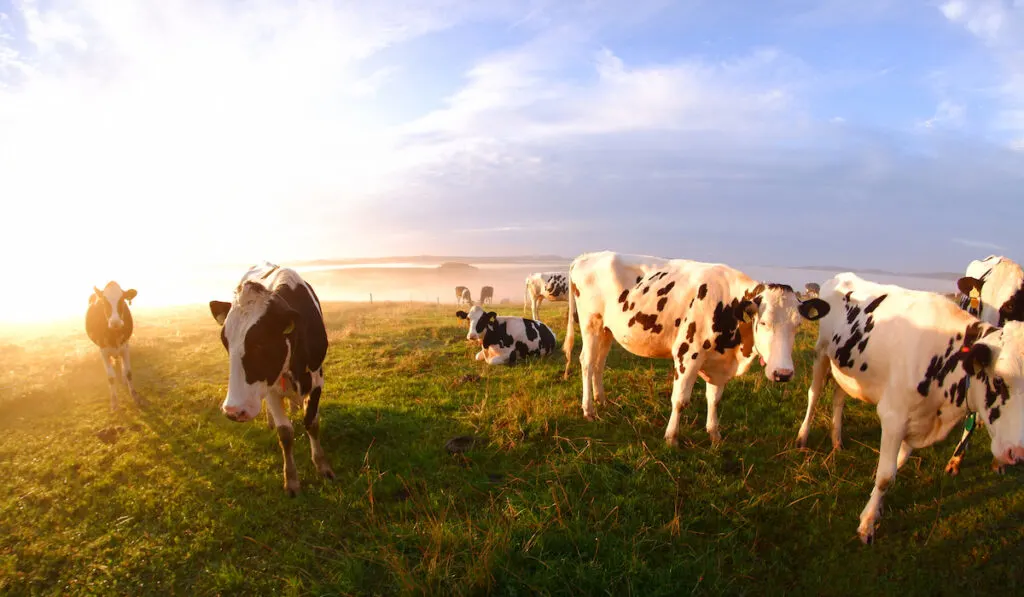
Table of Contents
Why Ticks Like Cows
Ticks are attracted to any mammal covered in hair because it provides not only a food source but also a safe environment for the ticks to live in, away from the direct sunlight.
The rays from the sun can dry out a tick and they continuously search for shady, humid areas that prevent this from happening.
A cow’s thick hair and ears provide shade from the sun and its large size allows multitudes of ticks to survive together on the same animal.
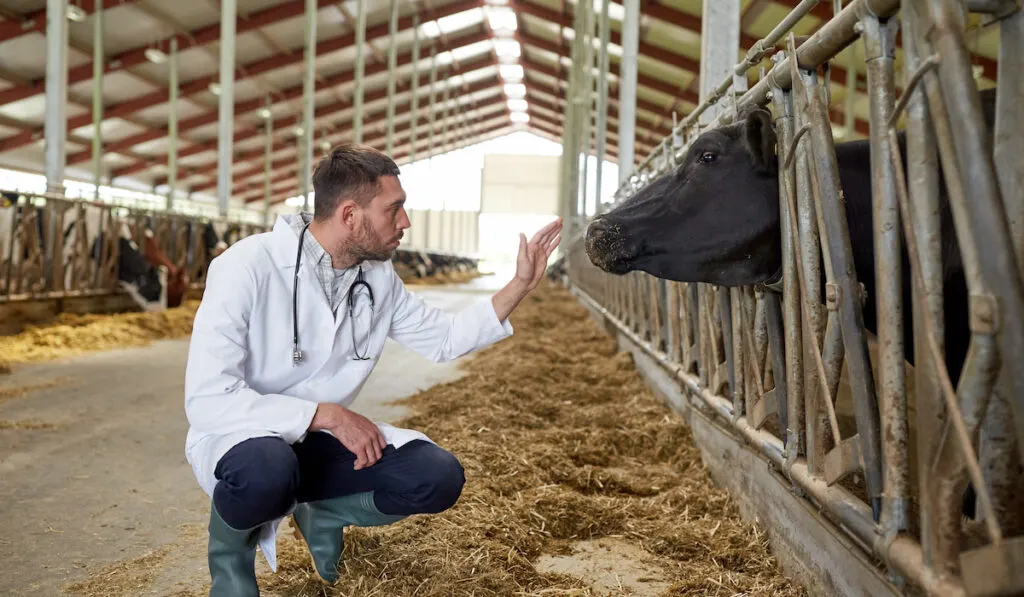
Tick-borne Diseases and Illness in Cattle
Ticks can cause diseases and medical issues for a wide variety of species and cows are no exception. Here are some of the most common tick-borne illnesses cattle face.
Anaplasmosis
Anaplasmosis is a blood disease in cattle and other animals that is transmitted by tick-bites. The disease results in a severe case of anemia along with fever, weight loss and even death in cattle. (source)
It typically affects older cows less than younger ones, but a cow of any age can be affected. Once infected, the cow will always be a carrier of the disease even if they do not show any signs.
Thankfully, there are preventative medicines that can reduce a herd’s risk of contracting anaplasmosis and some high-risk areas even have vaccines available.
Bovine Babiesiosis
Bovine babiesiosis is horrible tick-borne disease that can often be fatal in cows. It causes high fever, hemolysis, anemia and even spontaneous abortions in cattle. (source)
An eradication program in 1906 helped to contain the ticks that are most likely to transmit the disease, cattle fever ticks. Today, they are mostly restricted to a specific area in Brownsville, Texas.
Canker Ear
Some ticks enjoy setting up shop in a cow’s ear canal, creating open wounds that can get infected, causing the cow to lose interest in food, shake their head and scratch to ease the pain. This is referred to as canker ear in a cow.
Anemia
Severe tick infestations can lead to anemia in cows, especially young calves. Anemia is the lack of red blood cells that help to transport oxygen within an animal’s body.
Since ticks feed off the blood of their host, a severe infestation of ticks means that the animal is losing significant amounts of blood that can add up overtime, causing anemia.
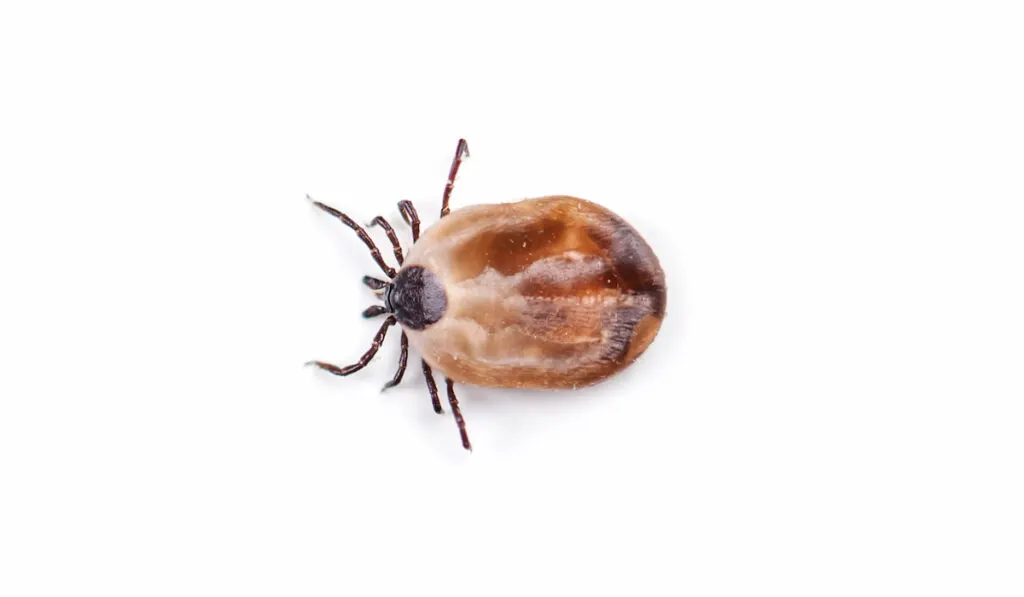
3 Common Types of Ticks on Cows
There are many different species of ticks that can live on a cow. These are the three most common types you would see in the United States.
American Dog Tick
Seen most often east of the Rocky Mountains, the American dog tick is a commonly seen tick that attacks cattle and other livestock. Reddish-brown in color, the American dog tick is not picky and will hitch a ride on any animal regardless of whether it is a dog or not. (source)
Spinose Ear Tick
The spinose ear tick enjoys taking up residence in the ears of cattle and other livestock. They can cause lots of blood loss and inner ear irritation, often causing the animal to shake its head repeatedly in response.
Lone Star Tick
Also called a turkey tick or northeastern water tick, the lone star tick is found most commonly in the eastern part of the country. They prefer smaller animals like wild turkeys, but they have no problem living on a cow or other livestock host.
How to Get Rid of Ticks on Cows
Deciding what tick preventative or treatment to use depends on your specific needs and whether you want to use insecticides on your cattle or not. These traditional ways of getting rid of ticks on your cattle utilize insecticides through various modes of application.
Insecticide Ear Tags
These ear tags contain specific insecticides that prevent tick infestations on cows for months, sometimes up to 5 months or more. They are weather-resistant and can withstand months of wear and tear.
Pour-On Insecticide
Pour-on insecticides contain ingredients like permethrin are often used on cattle to take care of tick infestations. They can be easily poured a cow’s back. These liquid applications usually only last for a short time and must be reapplied regularly.
Insecticide Dust
Insecticide dust is in powder form allowing it to be easily sprinkled on a cow’s back, if you can get close or catch them in head gate to apply the powder. As with the pour-on insecticide, it will only last for a limited time and will need to be reapplied regularly.
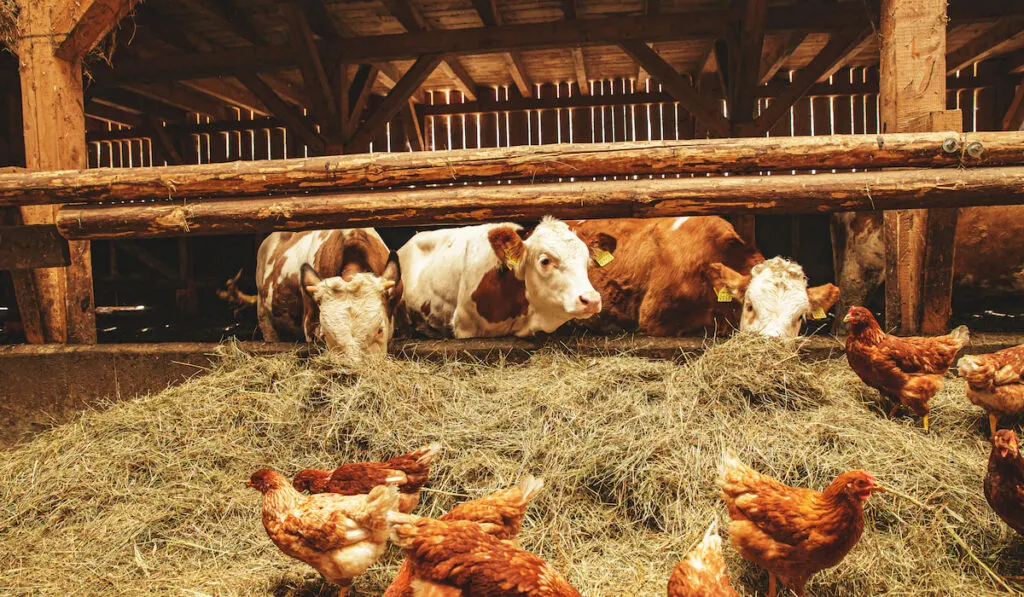
Natural / Organic Tick Remedies for Cattle
Unfortunately, there are not many natural and organic remedies on the market to treat cows for tick infestations. There are a couple of preventative measures that you can take in lieu of using products like insecticides.
Diatomaceous Earth
A natural and organic product, diatomaceous earth can be used to treat an animal’s skin or living area for insects like fleas as well as ticks. Cattle owners sometimes sprinkle it on their cow’s backs or sprinkle it in their cow’s bedding area if they are housed in stalls or contained areas. Insects of all kinds, including ticks, will eat the diatomaceous earth and will basically dry out, resulting in their death.
Keep brush and weeds cut back
Ticks love warm, humid areas because it keeps them from getting dried out by the sun. Removing as many weeds and brush as you can gives ticks less places to hide on your property.
Get some free-range poultry!
Poultry like chickens and guineas are notorious for keeping the number of insects on your property to a minimum. Poultry that can roam free on your property will spend their days eating insects including ticks and fleas. Over time, there will be less ticks on your farm that can infect your livestock.
Do Cows Get Fleas?
Yes! Cows can get fleas. Most fleas enjoy all kinds of animals and will use whatever animal available as a host, including cows. An unusually severe flea infestation can cause a small calf’s health to decline so rapidly that it can be fatal. (source)
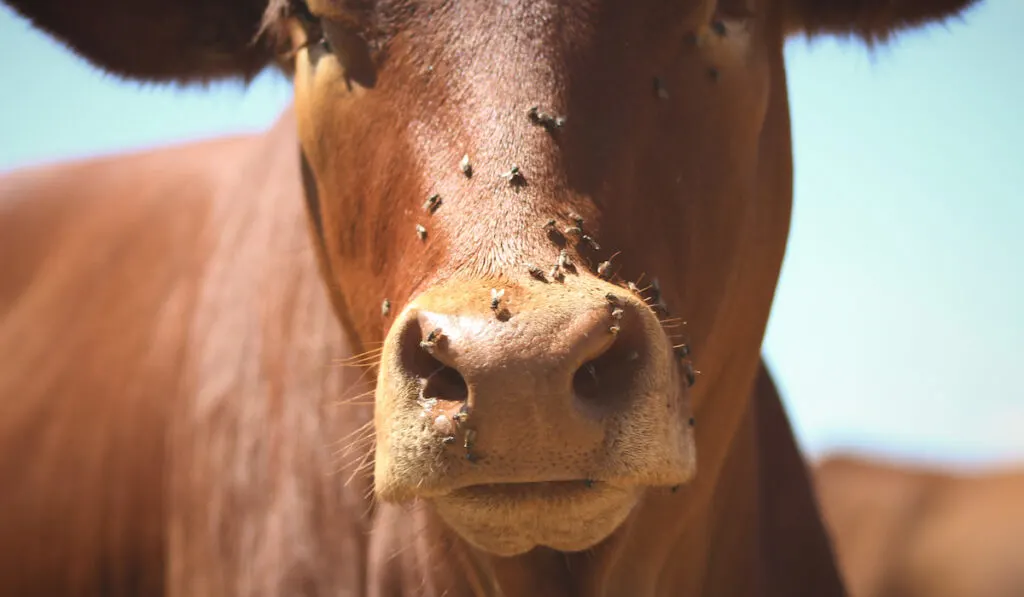
Other Insects that Love Cows
Apart from ticks and fleas, there are other insects that enjoy harassing our beloved cattle.
Horn Flies
These are small, gray flies that enjoy feasting on cattle and will repeatedly bite cows throughout the day to get their blood meals, up to 20 times per day! (source)
Often, if you see one horn fly on your cow, you will see dozens! If a cow gets too many bites, the bites can become infected. Some studies even indicate that a calf’s growth can be impeded if it is covered in flies for too long.
Cattle Mites
Cattle follicle mites and cattle ear mites both can be found on cattle within your herd. Cattle follicle mites like to live in a cow’s hair and can cause skin irritations.
Cattle ear mites like to live within the ear canal and if they get out of hand, they can even block the ear canal! (source)
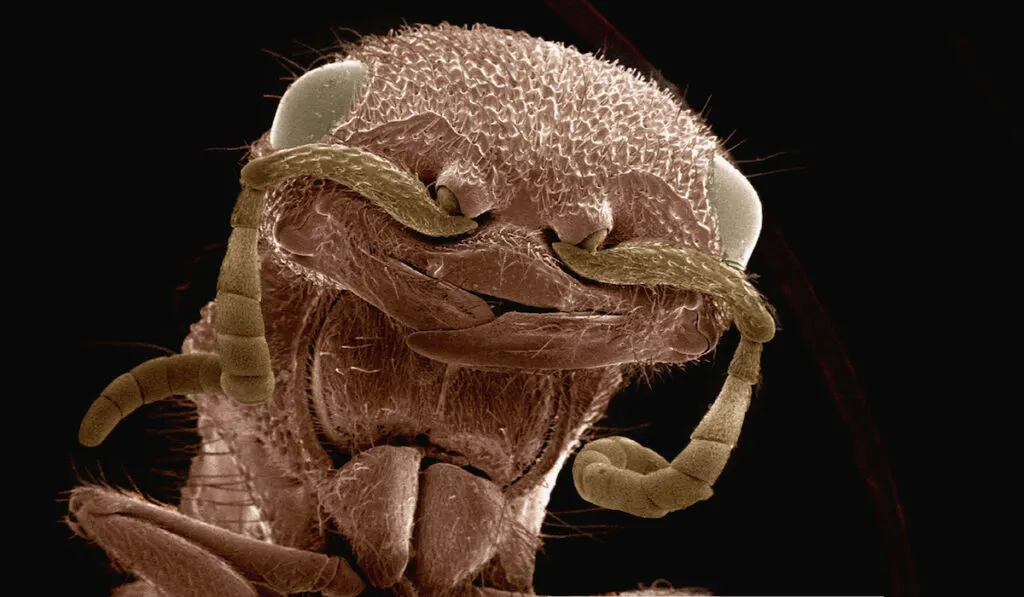
Eastern Velvet Ant
While this insect is not seen often in cows, it is important to know about because of its fear-inducing nickname.
Often called the cow killer, this ant is not an ant at all. It is a wasp that lurks in fields and its bite hurts so much that people say it could kill a cow. (source)
Have no fear though, the cow killer insect will not actually kill a cow, but their bite will be felt, and it will hurt, a lot!
Final Thoughts
Ticks like to hide within their host’s hair and even in their ears, so you may not see them easily on your cows. Luckily, you can use livestock friendly insecticides or natural methods of tick prevention around your farm. Either way, the more you reduce the amount of ticks on your property that can attack your cows, the less chance your cows will suffer the negative effects of a full-blown tick infestation!
